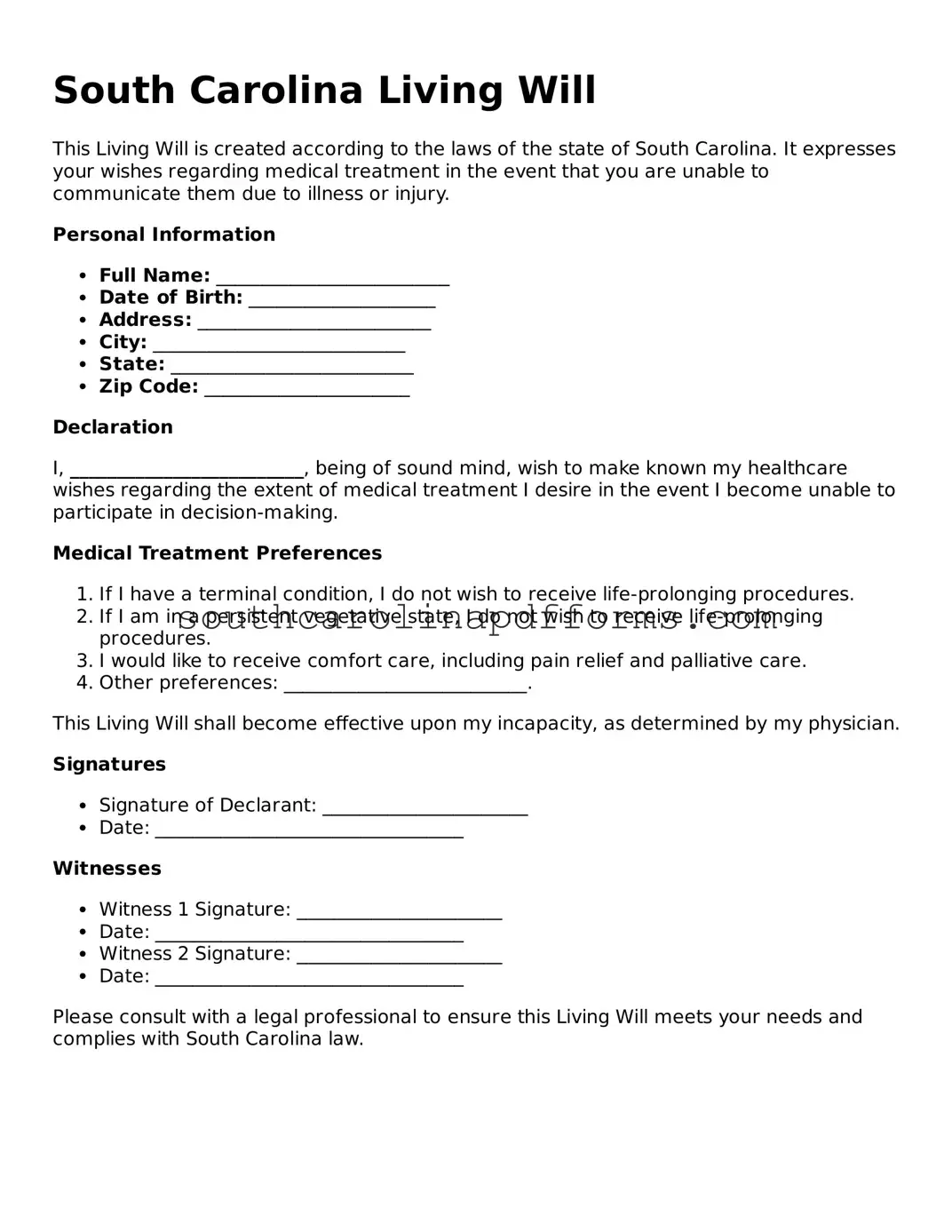The South Carolina Living Will form serves as a crucial legal document that allows individuals to express their preferences regarding medical treatment in situations where they may be unable to communicate their wishes. This form is designed to address end-of-life decisions, ensuring that a person's healthcare choices are honored even when they cannot actively participate in their care. It typically outlines the types of medical interventions one would either want or refuse, such as resuscitation efforts, mechanical ventilation, and feeding tubes. By completing this form, individuals can alleviate the burden on family members and healthcare providers who may otherwise face difficult decisions during a time of crisis. Furthermore, the Living Will must be signed in the presence of two witnesses or a notary public to be legally valid, emphasizing the importance of proper execution. Understanding the implications of this form is essential for anyone seeking to maintain autonomy over their medical care and to ensure that their values and preferences are respected at the end of life.
